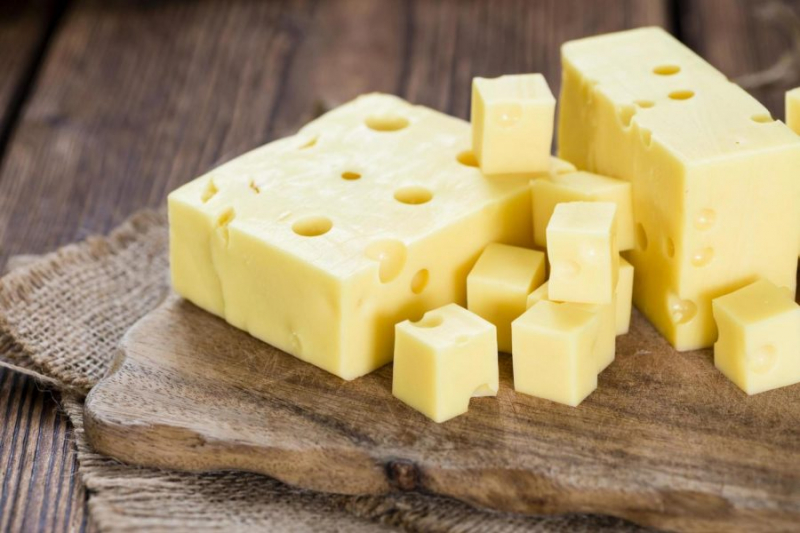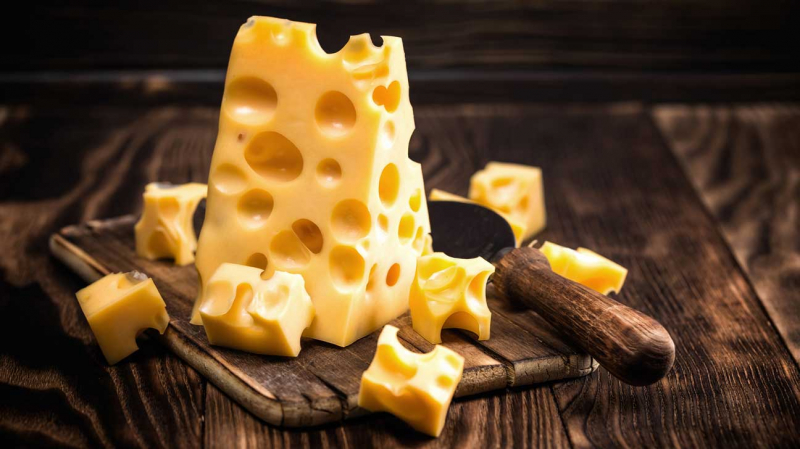Cheese

Cheese is a dairy product that is made in a variety of flavors, textures, and shapes by coagulating the milk protein casein. It is made out of proteins and fat from milk, mainly cow, buffalo, goat, or sheep milk. During the manufacturing process, the milk is often acidified, and enzymes such as rennet or bacterial enzymes with similar activity are added to cause the casein to coagulate. After separating the solid curds from the liquid whey, they are pressed into the finished cheese. Aromatic mold can be found on the cheese's rind, outer layer, or throughout.
Cheese is a good source of vitamin K2, as well as calcium, vitamin A, and protein. They are, however, high in saturated fats and calories, so limit your intake. The amount of vitamin K2 in cheese varies by kind and increases with age. The most vitamin K2-rich cheeses per 50-gram serving are Munster (50 micrograms), Camembert (34 micrograms), Edam and aged Gouda (32 micrograms), and cheddar (12 micrograms).
Cheese is high in calcium, which is important for bone and tooth health, blood coagulation, wound healing, and maintaining normal blood pressure. Men and women between the ages of 19 and 50 should ingest 1,000 mg of calcium every day. One ounce of cheddar cheese contains 20% of this daily requirement.











